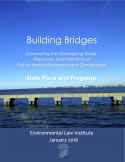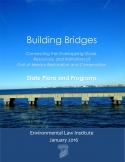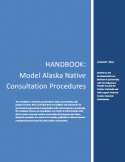
Research Reports
ELI publishes Research Reports available for free download that present the analysis and conclusions of the policy studies ELI undertakes to improve environmental law and policy. These reports contribute to education of the profession and disseminate diverse points of view and opinions to stimulate a robust and creative exchange of ideas. Those publications, which express opinions of the authors and not necessarily those of the Institute, its Board of Directors, or funding organizations, exemplify ELI’s commitment to dialogue with all sectors.
Energy efficiency retrofits can both conserve energy and improve indoor air quality. Early and ongoing consideration of IAQ issues during school energy upgrades is important for avoiding unintended, negative indoor environmental consequences and reaping the twin benefits of energy savings and a healthier, more productive school environment.
Read More >
In an effort to link the spill-related processes with the existing framework, we released a report in April 2014 entitled “Building Bridges: Connecting the Overlapping Goals, Resources, and Institutions of Gulf of Mexico Restoration and Conservation (Federal Programs).” That report addressed opportunities to link existing federal programs with the processes initiated in response to the spill, identifying dozens of existing federal programs with goals and objectives that overlap with the oil spill restoration processes.
Read More >
In this report, we focus on Gulf of Mexico state plans (including regional plans) and state programs. As oil spill restoration efforts move forward, these plans and programs may be important to consider for a number of reasons.
Read More >
Government-to-government consultation is an opportunity for better U.S. Arctic management decisions that are built on an exchange of views and perspectives with Alaska Natives. However, our past research showed that consultation had often failed to live up to its potential. The Handbook attempts to change that by providing a tool to support Alaska Natives as they develop their own policies and procedures for consultation, with a specific focus on marine mammal issues.
Read More >